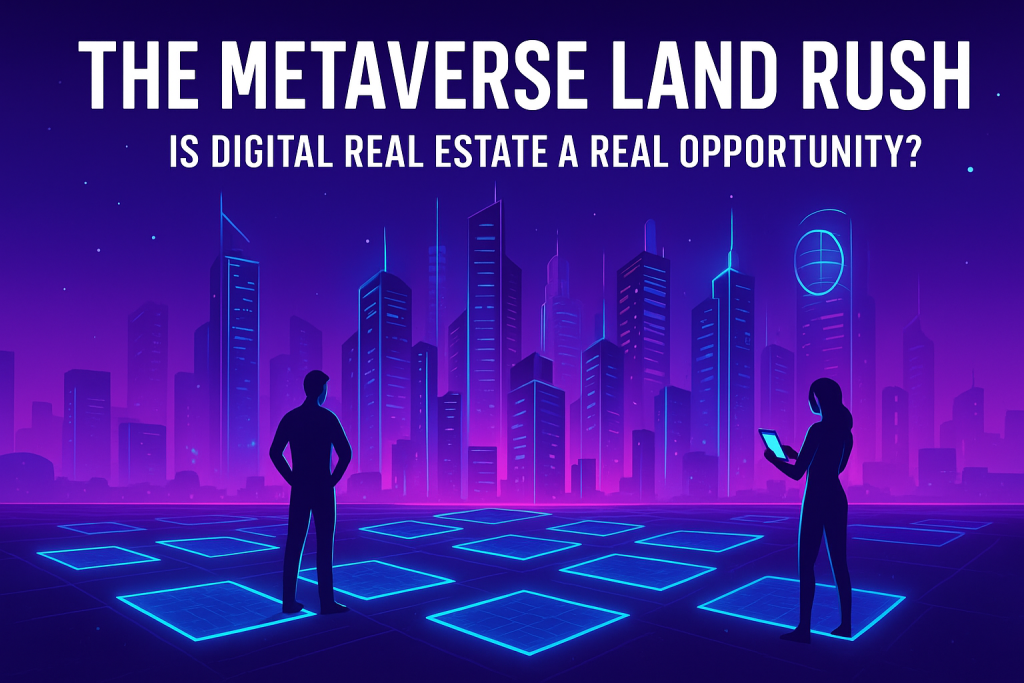The concept of owning land has always been tied to something tangible—bricks, soil, and physical property. Yet in the last few years, a new frontier has emerged: digital real estate in the metaverse. Platforms such as Decentraland, The Sandbox, and Otherside have popularized the idea of buying, selling, and developing virtual plots of land. But the big question remains—is digital real estate a real investment opportunity, or just another speculative bubble?
Why Are People Buying Virtual Land?
At its core, metaverse land functions much like traditional real estate: it is finite (limited plots within a platform), can be developed (shops, event spaces, galleries), and generates income (rent, ads, brand partnerships). Major corporations including Adidas, JP Morgan, and Samsung have already bought digital land to build virtual stores and experiences, betting on long-term engagement.
For early adopters, the appeal lies in scarcity and first-mover advantage—the belief that owning prime virtual property today could yield high returns tomorrow.
The Investment Potential
- Brand Opportunities – Companies use metaverse land to connect with younger, digital-native audiences.
- Event Hosting – Virtual concerts, exhibitions, and conferences generate revenue streams.
- Speculation – Like buying land in Manhattan decades ago, investors hope digital plots will appreciate in value as adoption grows.
The Risks and Challenges
However, unlike physical real estate, virtual land is intangible and platform-dependent. If a platform loses relevance, land value could drop to zero. Other challenges include:
- Volatility: Prices swing dramatically with crypto market cycles.
- Uncertainty: No guarantee of mass adoption for any metaverse platform.
- Regulation: Legal frameworks for ownership and rights remain unclear.
Bubble or Breakthrough?
Some analysts argue that metaverse land is a speculative bubble, driven more by hype than utility. Others believe it mirrors the early days of the internet—where digital assets once seemed absurd, but later became trillion-dollar markets.
The metaverse land rush is a fascinating experiment at the crossroads of real estate, blockchain, and digital culture. While the long-term value of virtual property is still uncertain, one fact is clear: it has opened up a new way of thinking about ownership and investment in a world that is increasingly digital.
For investors, the key is caution and diversification. Digital real estate may become a lucrative niche—but only those who balance risk with realism are likely to succeed.


